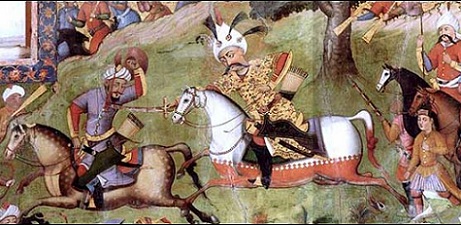The well-known episode of one Morād Beg Jahānšāhlū being cooked and eaten after Ḥoseyn Kiyā`s unsuccessful rebellion in 1504 is not consistently represented by 16th century Safavid sources: Ḫwāndamīr (Ḥabīb al-siyar) and Ḥasan Beg Rumlū (Aḥsan al-tavārīḫ) do not mention any cannibalism, while later accounts like Eskandar Beg Monšī appear to be copied directly from Qazvīnī`s earlierLobb al-tavārīḫ (ca. 1555).
The second episode – the partial consumption of Moḥammad Shibāni Khān`s corpse on the battlefield outside of Marv in 1510 – likewise appears to have numerous historiographical gaps and contradictions in the sources. For Bashir, these isolated acts of cannibalism are better understood as symbolic displays of submission and loyalty by the Qizilbāsh rank-and-file towards their Safavid shah, and as such cannot be categorized as part of a larger ritual belief system inherited from the Steppe traditions.
The significance of this early anthropophagy is made even further complicated by the fact that Šāh `Abbās the Great was reputed to have kept a group of cannibals (chiggiyān) who would cook and eat criminals and dissenters. On this basis, Bashir divides cannibalism into two types – secular and religious – with the former being associated with the despotic stylings of `Abbās and the latter identified with the pietistic devotion felt by Qizilbāsh for Esmā`īl as bothmuršid and shah.
More about:















































